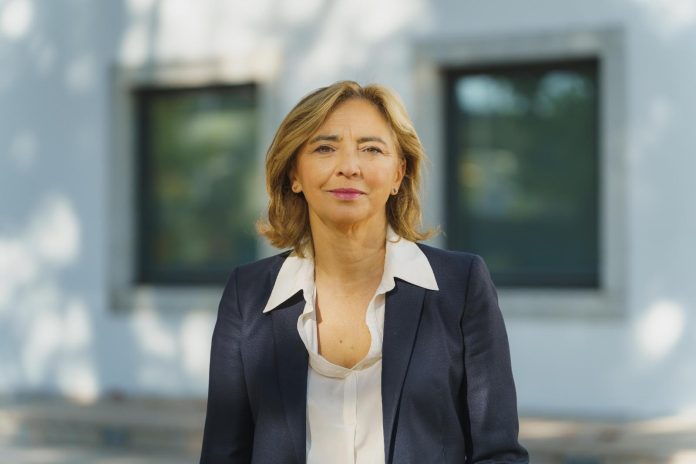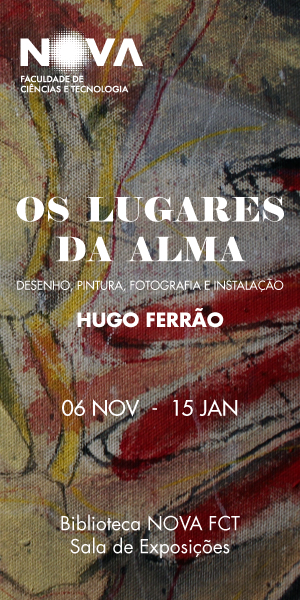After eight years of Socialist leadership, Inês de Medeiros, mayor of Almada, acknowledges that much remains to be done in the municipality but defends the legacy of her governance. The remarks were made in an interview with ALMADENSE conducted shortly before the 2025 local election, in which Medeiros later secured a third term as Mayor of Almada with 29% of the vote.
Describing her two terms as part of a “strategic cycle” within a 12-year vision, mayor of Almada Inês de Medeiros highlights ongoing investments in schools, health centers, green spaces, and major urban renewal projects such as the EDP redevelopment and the creation of a new Loja do Cidadão. In an interview with ALMADENSE, she acknowledges structural challenges, including bureaucratic fragmentation and state control over key urban areas. Many large projects, including the former Lisnave, Cais do Ginjal, CostaPolis, and Almada Nascente and Poente, remain stalled, which she attributes to the central government’s reluctance to share authority or resources.
Housing: between construction and rehabilitation
Housing remains one of Almada’s greatest challenges. However, Almada’s socialist mayor emphasizes that, despite criticism, the municipality has delivered new public homes in developments like Quinta da Caneira, Febo Moniz, and Vale Linhoso, while rehabilitating hundreds of degraded municipal units. Inês de Medeiros stresses that Almada’s housing strategy combines new construction with rehabilitation to ensure dignified living conditions. Yet progress has been hindered by the lack of available land, with most strategic plots belong to the Portuguese state. Cooperation with the IHRU (the national housing institute) has been fraught, which leads Medeiros to accuse it of inertia, particularly regarding the informal settlements of Penajóia and Raposo, where she claims a “mafia-like scheme” of illegal construction emerges while the state remains inactive.
The mayor also criticizes the national execution of the EU-funded Recovery and Resilience Plan (PRR), describing it as “a calvary” due to bureaucratic paralysis and lack of leadership by the IHRU. Almada has 450 homes under construction and many rehabilitation projects awaiting funding, but inflation doubles building costs and only a fraction of PRR funds are executed. She calls for continued European financing and a stronger role for municipalities.
Waste collection: workforce shortage and rising costs
On waste collection, Medeiros acknowledges a serious challenge in the city’s system, admiting that there are not enough municipal workers available to handle the growing volume of rubbish. She warns that Almada’s waste-management costs have become “unsustainable” since the privatization of Amarsul, the company managing recycling in Almada. Municipal waste fees have tripled, yet collection demands continue to rise. Therefore, Medeiros advocates for a metropolitan waste-management entity similar to Lisbon’s transport authority (TML) and stresses that residents must understand that “every piece of rubbish dumped on the street ends up in their water bill”. At the same time, strengthening inspection and awareness, possibly through the Municipal Police, is a top priority, she advocates.
Mobility and public transport
Mobility and public transport remain a central focus for Almada mayor, who laments delays in deploying electric boats to Cacilhas and Trafaria, blaming infrastructure and property disputes between the municipality, Transtejo, and the central state. She insists that the metro extension to Costa da Caparica and Trafaria goes ahead as part of an integrated mobility network, despite some local opposition. The proposed route along Avenida Afonso de Albuquerque, she argues, preserves traffic lanes, creates a continuous seafront cycle path, and avoids major environmental risks. She stresses that Costa da Caparica already faces enormous tourist pressure —receiving up to a million visitors a week in summer— and that better public transport is essential to reducing car congestion. To this end, the metro project includes an intermodal hub at the IC20 entrance and discussions about reactivating the Transpraia coastal train. Medeiros says the municipality could be open to the initiative, but wants to first see a plan from the private owner.
Medeiros also mentions plans for a “green corridor” along the IC20 to connect Almada and Costa via a cycling and pedestrian route, although national road authorities prioritize adding a new car lane instead—against the city’s wishes.
Waterfront redevelopment: Ginjal and public space
Regarding urban renewal on the waterfront, she says the Ginjal project remains stuck due to environmental disputes but supports revising the plan to reduce density and increase public space, without revoking the developer’s rights.
Politics and governance
Politically, Inês de Medeiros faces a complex municipal landscape without a Socialist majority. She says she has “lived well without an absolute majority,” despite frustrations such as the opposition’s rejection of the city budget for political gain. While open to post-electoral agreements with democratic forces, she categorically excludes any negotiation with the far-right Chega party. She recalls that in 2017 the CDU (Communists) negotiated “in bad faith,” but remains open to cooperation if the left “overcomes its frustration and poor losing attitude.” She also criticizes the current municipal law, beacuse it leaves opposition councillors without real functions, arguing instead for a stronger Municipal Assembly as a true oversight body.
Ultimately, the socialist mayor portrays herself as a pragmatic politician, focused on continuity rather than rupture. She defends Almada’s modernization under her leadership, while calling for deeper institutional cooperation and renewed political maturity on the left. “After all,” she concludes, “I am not the mayor of those who voted for me, but of all almadenses. What matters is that the potholes get fixed, whoever does it.”
You can read the full Portuguese version of the interview here.
Inês de Medeiros (PS) eleita para terceiro mandato em Almada com Executivo fragmentado






